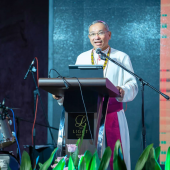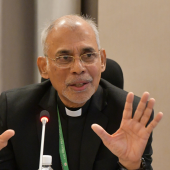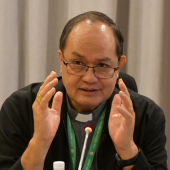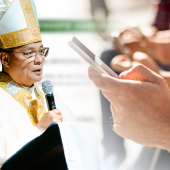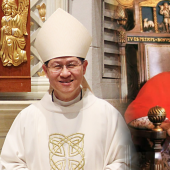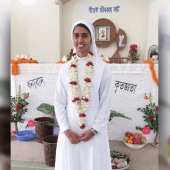Malaysia: Archbishop Simon Poh Pushes Forward with Oral Bible Translation for Indigenous Communities
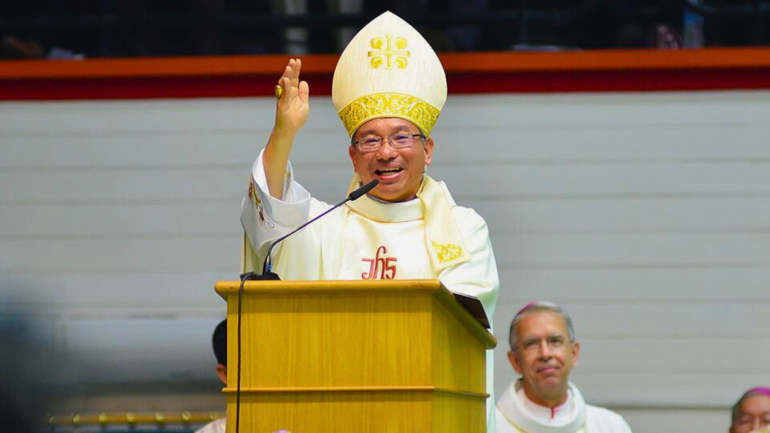
A two-day weekend session in Kuching, Malaysia, has highlighted the rapid expansion of Oral Bible Translation (OBT) and the impact of audio Scripture tools among indigenous communities in Borneo and other Southeast Asian regions.
Organised by the Kuala Lumpur chapter of “Faith Comes From Hearing Asia”, the meeting brought together leaders from “Faith Comes By Hearing (FCBH),” SIL International, Wycliffe Bible Translators and several Malaysian churches. The groups explored new ways of making the Bible accessible in local “heart languages,” especially among communities with little written tradition.
Archbishop of Kuching Simon Poh, who was among those who addressed the participants, said Sarawak remains one of the most linguistically complex Christian regions in Southeast Asia.
“Sarawak has over 50 per cent Christians, most of them from our indigenous communities living in the rural interiors and hinterlands,” Poh said.
“We have nearly 30 languages in Sarawak alone. While English, Chinese and Bahasa Malaysia are our national languages, the heart languages (native dialects) of many villages remain oral. Not all our tribes have written or audio Bibles yet.”
Poh noted that earlier missionary translation work was often limited by modest resources. While modern tools have increased output over the past three decades, many rural elders still lack access to Scripture in the languages they speak at home.
“Traditional translation takes decades,” he said. “Some elders may never have the chance to hear Scripture in the language of their hearts. That is why the introduction of Oral Bible Translation by FCBH is a moment of hope.”
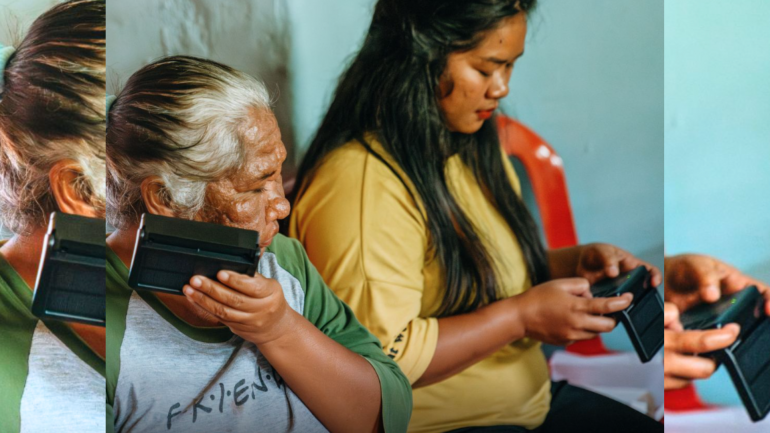
Audio Bible Tools for Oral Cultures
Unlike conventional written translations, OBT produces accurate, community-reviewed oral recordings of Scripture. The method is designed for cultures where literacy is low or where languages do not have an established writing system.
Participants at the session were introduced to the Proclaimer, a solar-powered, hand-crank audio Bible device capable of broadcasting Scripture to entire longhouse communities. Poh said the tool is especially valuable for older villagers who have carried the Christian faith through generations but never had access to written Bibles.
“Many of our elders do not read, but with audio Scripture, they can now hear Jesus speaking to them in their own heart language,” he said.
Aiming for One Gospel in Every Native Language
Poh said the goal of the OBT movement in Sarawak is to translate and record at least one Gospel in every indigenous heart language.
“Our aim is simple — to offer the Word of God in the languages spoken in rural longhouses and villages, especially for those who carried the faith through hardship and handed it down to their children and grandchildren,” he said.
He also recalled the Bau Bible Launching on Feb. 23, 2020, when Malaysian Bible agencies collaborated for the first time to release both printed and audio Scripture for a local community.
“That day, we saw the Church united — Catholics, Protestants, Evangelicals, villagers, farmers, city folk, even politicians — all rejoicing because the Bible was finally available in both printed and audio form,” Poh said. “It showed what is possible when the Body of Christ works together.”
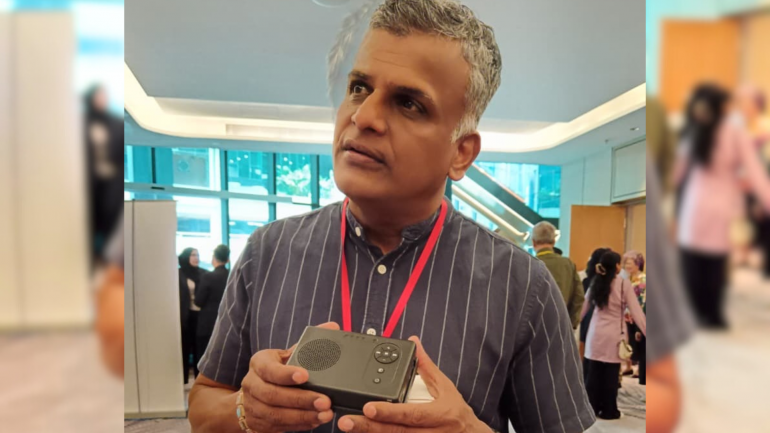
Digital Access Expands Reach
FCBH National Coordinator Seelan Veerapan said with smartphones now common even in rural areas, audio Bibles can be downloaded directly onto mobile devices, allowing Scripture to bypass geographic and literacy barriers.
He said, “Global data underscores the urgency of the work: more than 7,100 languages are spoken worldwide; 70% of the global population primarily learns through oral communication; and roughly half of the world’s people cannot read at a functional level.”
David Yap, who heads FCBH Kuala Lumpur, said: No single ministry can complete the task alone, but greater collaboration in recent years has accelerated progress.
“Our goal is to work in partnership to see that the Word of God is recorded and freely provided in every language that needs it by the year 2033.”
He said: “The movement is grounded in the conviction of Romans 10:17 — 'Faith comes from hearing.” For Sarawak’s interior communities, church leaders say, hearing is increasingly possible in the languages spoken around longhouse hearths for generations.
“Many encouraging testimonies have been reported from hearers of the Word of God, which is much needed by our Christian brothers and sisters who have no access to electricity or the Internet in Peninsular Malaysia, Sabah, and Sarawak. At a rural church in Sabah, regular worshippers had grown fivefold since one pastor started using a Proclaimer during services.
FCBH aims to work in partnership to see that the Word of God is recorded and freely provided in every language that needs it by the year 2033.
Radio Veritas Asia (RVA), a media platform of the Catholic Church, aims to share Christ. RVA started in 1969 as a continental Catholic radio station to serve Asian countries in their respective local language, thus earning the tag “the Voice of Asian Christianity.” Responding to the emerging context, RVA embraced media platforms to connect with the global Asian audience via its 21 language websites and various social media platforms.









